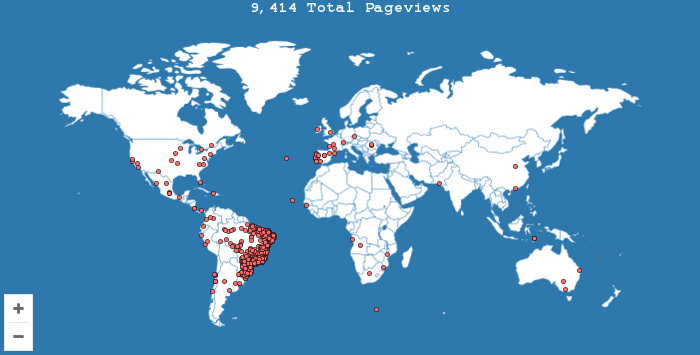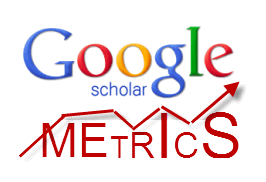Accessible Teaching Practices based on Universal Design for Learning
DOI:
https://doi.org/10.31496/rpd.v25i50.1736Keywords:
inclusive education, universal design for learning, accessible teaching practicesAbstract
This article presents results of an investigation involving inclusive education with the object of study being accessible teaching practices based on the universal design for learning (UDL). The general objective was to identify, describe and understand how universal design for learning can support inclusive pedagogical practice in the final years of Elementary School. This is narrative research – qualitative, through pedagogical letters, training meetings and conversation circles. Participating teachers recognize that planning accessible classes with the learning process of students eligible for special education in mind is a challenge. DUA's educational approach enabled a new look at how to develop a teaching plan according to the needs of each student. It was found that the universal design for learning contributes to the redefinition of the way of planning accessible classes in heterogeneous classes, privileging the diversity that exists in a classroom.
Downloads
References
BRASIL. Constituição da República Federativa do Brasil: promulgada em 5 de outubro de 1988. 4. ed. São Paulo: Saraiva, 1990. Disponível em: https://www2.senado.leg.br/bdsf/bitstream/handle/id/518231/ CF88_Livro_EC91_2016.pdf . Acesso em: 27 jan. 2023.
BRASIL. Lei nº 9.394, de 20 de dezembro de 1996. Estabelece as diretrizes e bases da educação nacional. Brasília: Presidência da República, 1996. Disponível em: https://www.planalto.gov.br/ccivil_03/Leis/L9394.htm. Acesso em: 27 jan. 2023.
BRASIL. Lei nº 13.146, de 6 de julho de 2015. Lei Brasileira de Inclusão da Pessoa com Deficiência. Disponível em: https://www.cnmp.mp.br/portal/images/lei_brasileira_ inclusao__pessoa__deficiencia.pdf. Acesso em: 02 mar. 2023.
CAST. Read universal design for learning: theory and practice for free in clusive. Lynnfield: CAST, Inc., 2014. Disponível em: http://udltheorypractice.cast.org. Acesso em: 20 jan. 2023.
COSTA, E. L. da. Desenho universal para a aprendizagem no ensino de ciências: estratégias para o estudo do sistema digestório. 340 f. 2018. Dissertação (Mestrado Profissional em Ensino de Ciências) – Universidade Federal do Pampa, Bagé, 2018. Disponível em: https://dspace.unipampa.edu.br/handle/riu/4008. Acesso em: 21 jan. 2023.
COSTA-RENDERS, E.C., BRACKEN, S.; APARÍCIO, A. S. M. O design universal para aprendizagem e a pedagogia das estações: as múltiplas temporalidades/ espacialidades do aprender nas escolas. Educação em Revista [online], v. 36, e229690, 2020. DOI: https://doi.org/10.1590/0102-4698229690.Disponível em: https://www.scielo.br/j/edur/a/NNG7XdyfwTdKgqfZfwbRnMx/. Acesso em: 21 jan. 2023.
FREIRE, P. Pedagogia da autonomia: saberes necessários à prática educativa. São Paulo: Paz e Terra, 1996.
GARCEZ, L., IKEDA, G. Educação inclusiva de bolso: o desafio de não deixar ninguém para trás. 1. ed. São Paulo: Arco 43, 2021.
LIMA, M. E. C. C; GERALDI, C. M. G.; GERALDI, J. W. O Trabalho com narrativas na investigação em educação. Educação em Revista, Belo Horizonte, v. 31, n. 01. p. 17-44, jan./mar. 2015. DOI: https://doi.org/10.1590/0102-4698130280. Disponível em: https://www.scielo.br/j/edur/a/w7DhWzM5mB4mZWLB5hthLVS/abstract/?lang=pt. Acesso em: 03 mar. 2023.
MANTOAN, M. T. É. Inclusão escolar: o que é? por quê? como fazer? São Paulo: Summus, 2015.
NUNES, C.; MADUREIRA, I. Desenho universal para a aprendizagem: construindo práticas pedagógicas inclusivas. Da investigação às Práticas, v. 5 n. 2, p. 126-143, jul. 2015. Disponível em: https://repositorio.ipl.pt/bitstream/10400.21/5211/1/84-172-1-SM.pdf . Acesso em: 19 mar. 2023.
OLIVEIRA, A. M. de. Práticas de ensino acessíveis a partir do desenho universal para aprendizagem. Dissertação (mestrado) – Programa de Pós-Graduação em Educação, Universidade Municipal de São Caetano do Sul – USCS, São Caetano do Sul, 2023.
PRAIS, J. L. S.; ROSA, V. F. Organização da atividade de ensino a partir do desenho universal de aprendizagem: das intenções às práticas inclusivas. Revista Polyphonía, v. 25, n. 2, p. 35-50, 21 out. 2015. 2024. Disponível em: https://revistas.ufg.br/sv/article/view/38148. Acesso em: 02 abr. 2023.
PREFEITURA MUNICIPAL DE SÃO CAETANO DO SUL. Lei n° 6.124, de 24 de agosto de 2023. Institui a Política Municipal de Educação Especial a serviço da Educação Inclusiva. S]ao Caetano do Sul: Diário oficial eletrônico, 2023.
RAMALHO, R. R. Modelo analítico da pedagogia do oprimido: sistematização do método Paulo Freire. Revista Brasileira de Educação, v. 27, e270007, 2022. DOI: http://dx.doi.org/10.1590/s1413-24782022270007. Disponível em: https://www.scielo.br/j/rbedu/a/br7NczPCHrxYzQkfWCQryQH/?lang=pt. Acesso em: 02 abr. 2023.
SÃO PAULO. Política de educação especial do Estado de São Paulo. Secretaria da Educação. 2021. Disponível em PEE-SP-DOCUMENTO-OFICIAL.pdf (educacao.sp.gov.br). Acesso em: 13 fev. 2023.
SASSAKI, R. K. Inclusão: o paradigma do século 21. Revista Inclusão, ano 1, n. 1, p. 19-23, out. 2005.
SASSAKI, R. K. As sete dimensões da acessibilidade. Rio de Janeiro: Larvatus Prodeo, 2019
VILARONGA, C. A. R.; MENDES, E. G. Ensino colaborativo para o apoio à inclusão escolar: práticas colaborativas entre os professores. Rev. bras. Estud. pedagog., Brasília, v. 95, n. 239, p. 139-151, jan./abr. 2014. Disponível em: https://www.scielo.br/j/rbeped/a/dBz3F9PJFfswJXFzn3NNxTC/abstract/?lang=pt. Acesso em: 22 fev. 2023.
ZERBATO, A. P.; MENDES, E. G. Desenho Universal para a Aprendizagem como estratégia de inclusão escolar. Educação Unisinos, São Leopoldo, RS, v. 22, n. 2, p. 147-155, abr.-jun. 2018. Disponível em: https://revistas.unisinos.br/index.php/educacao/article/view/edu.2018.222.04. Acesso em: 29 jan. 2023.
WIEDEMANN, Â. P. Z.; MATOS, E. A. S. A; SILVA, R. G. S. O desenho universal para aprendizagem e sua prática pedagógica. (Mestrado Profissional em Ensino de Ciência e Tecnologia) – Programa de Pós-Graduação em Ensino de Ciência e Tecnologia, Universidade Tecnológica Federal do Paraná, Ponta Grossa. 2020.
Downloads
Published
How to Cite
Issue
Section
License
Submitted texts approved by the Editorial Board of Revista Profissão Docente will be published, and their authors may use them for future publications, provided that the original edition is properly cited (title, Revista Profissão Docente, volume, issue, year of publication, and page numbers of the referenced text). All articles published in this journal are the sole responsibility of their authors. Revista Profissão Docente and Universidade de Uberaba assume no legal responsibility for their content.
















